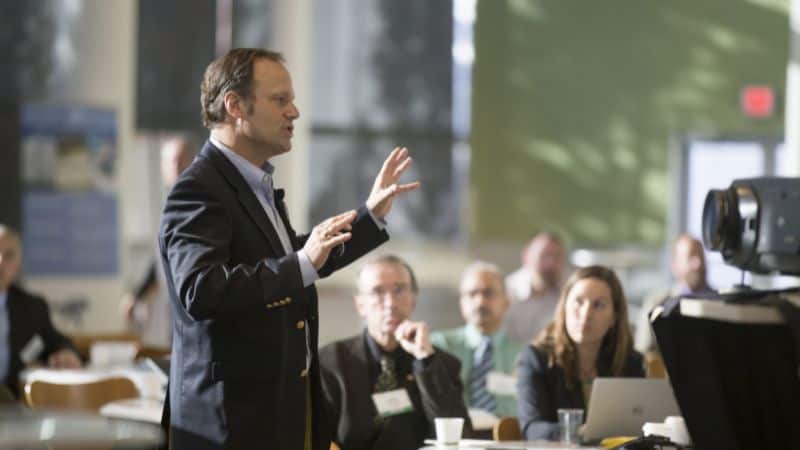Motivation speeches often paint a world where anything is possible. It’s a compelling narrative, but not entirely accurate. We cannot achieve everything. But the true extent of our capabilities remains unknown until we try.
These motivational speeches have been part of my repertoire. However, they are often in fragments rather than full keynotes. The speeches are concise and ideal for brief, impactful challenge talks following a workshop. I designed these speeches to plant the seeds of inspiration and challenge.
Motivation speeches are more than just uplifting words. This series aims to go beyond temporary inspiration. It’s about understanding the deeper aspects of motivation and how to consistently nurture it in ourselves and others.
These motivation speeches are not just about energizing an audience. They’re about exploring the essence of what drives us. Dive into the art and science of motivation, learning how to harness it for lasting impact.
1. Resilience Trumps Motivation
In life’s grand race, motivation gets us off the starting line, but it’s resilience that carries us to the finish. Picture a motivated person: full of energy, eyes shining with the reward that waits at the end. They’re the sprinters, quick off the blocks, fueled by the immediate payoff. But what happens when the track stretches beyond sight, when rewards blur in the distance?
That’s where resilience comes in.
Think of life as a marathon, not a sprint. I learned this lesson as a child, unexpectedly thrown into a marathon. Dressed in a runner’s uniform, bearing a number, I stood among peers equally unprepared. We bolted at the start, as if it were a 100-meter dash, fueled by naive motivation. It seemed easy, thrilling even.
But soon, the true marathoners – those seasoned in resilience – outpaced us. We, the motivated ones, gasped for breath, our initial energy fizzling out. We lacked the resilience, the wisdom, of those long-distance runners.
This experience taught me a crucial lesson: While motivation is the spark, resilience is the flame that keeps burning. Motivation is fleeting; it’s a feeling that comes and goes. Resilience, on the other hand, is built. It’s the steady, relentless force that pushes you forward when motivation fades. It’s the ability to keep going, even when the excitement wanes, when the end seems nowhere in sight.
In our lives, we’ll face long stretches where motivation is scarce. Here, resilience takes the lead. It’s not about running the fastest; it’s about keeping your pace, steady and unwavering. Remember, in the marathon of life, it’s resilience that will carry you across the finish line, long after the initial burst of motivation has vanished.
2. The Myth of Self-Motivation
I have encouraged people to enhance their self-motivation. It is powerful. It can help you get what you want. But there are some misconceptions about it. Leaders who are “self-motivated” expect everyone to self-motivate.
Let’s debunk a common myth today: the idea that motivation is a simple, internal switch we can flip on and off at will. It’s a tidy concept, but far from the truth. Motivation is a complex beast, influenced by a myriad of factors both within and beyond our control.
Firstly, motivation is not just an inner force. It’s shaped by our emotional state, our environment, our physical health, and our personal goals. These factors intertwine in a delicate dance, influencing how we feel and act. To believe we can control motivation with sheer willpower is like trying to tame the ocean with a spoon.
Then there’s the role of external influences, often underestimated in this myth. Social support, work environment, cultural norms, and even our socioeconomic status play crucial roles in fueling or draining our motivation. To ignore these is to miss half the picture. It’s like trying to understand a story by reading only every other page.
This myth also fails to recognize the challenges in maintaining self-motivation. Life throws curveballs – mental health struggles, burnout, personal crises – and these can knock the wind out of our motivational sails. To expect unwavering self-motivation in the face of such challenges is not just unrealistic, it’s unfair.
Finally, the myth perpetuates a harmful idea: that needing help or external motivation is a weakness. This notion fosters isolation and excessive self-reliance. We’re social creatures, wired for connection. Seeking support isn’t a flaw; it’s a fundamental part of being human.
My point: motivation is more intricate than this myth suggests.
It’s a fluid, dynamic force influenced by internal and external factors. Understanding this can free us from unrealistic expectations and open us to a more compassionate, holistic approach to motivation.
Let’s embrace the complexity of motivation and recognize the value of seeking support when needed.
After all, in this interconnected world, no one is an island, and no one should have to motivate themselves alone.




